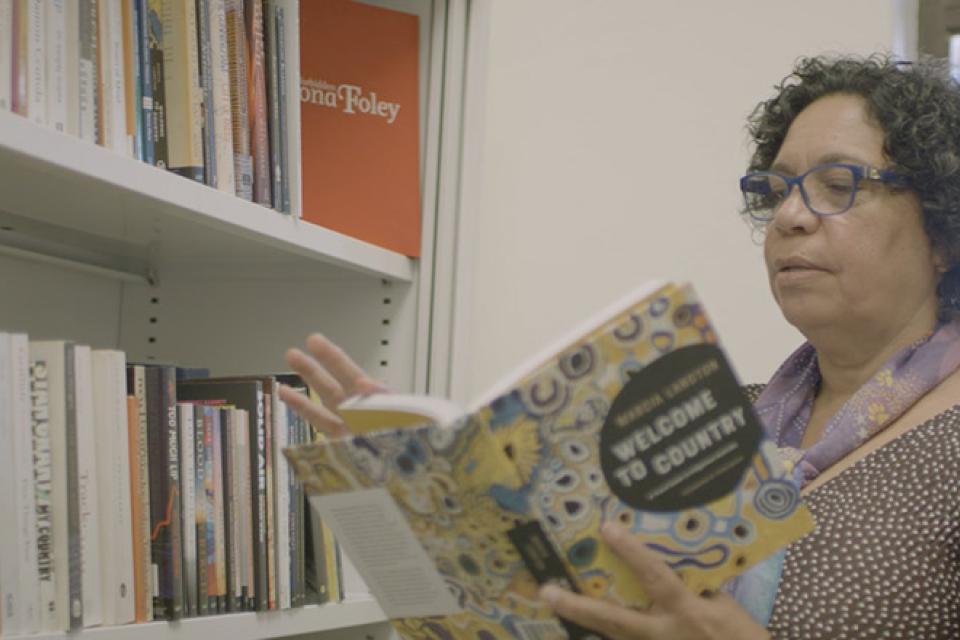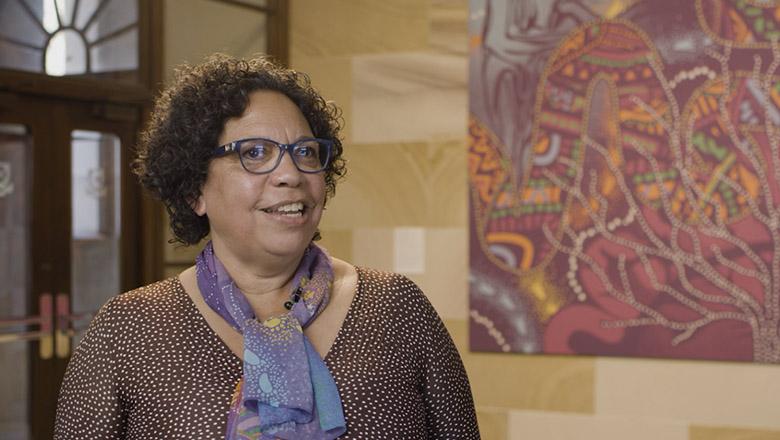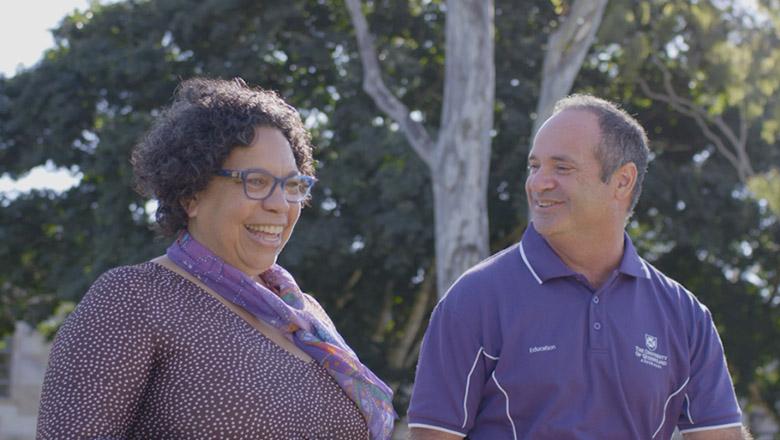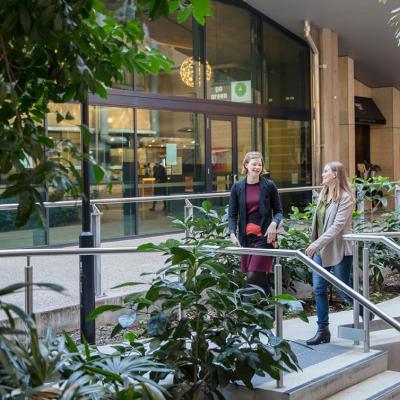Sandra Phillips, the former Associate Dean (Indigenous Engagement) for the Faculty of Humanities, Arts and Social Sciences at UQ, talks about her journey from PhD candidate to research supervisor – with some bonus tips for students looking to pursue a higher degree by research.
Not everybody takes the direct academic path of stepping into a higher degree by research immediately after completing a bachelor’s or master’s program.
Sandra Phillips is the perfect example of why it’s never the “wrong” time to pursue a PhD. She began her PhD journey as a 39-year-old mother of 3 boys. She already had several decades of experience in the Australian publishing industry when she pivoted towards academia.
Let’s explore her PhD story and how it led to her becoming a PhD supervisor.
What sparked Sandra’s PhD?
Sandra’s PhD was an opportunity to reflect on her time in publishing – a chance to truly analyse the inner workings of an industry that both shapes and is shaped by society.
“After years of working in the industry, I decided I wanted to understand more about the impacts of the industry and also the machinations of that industry,” she says.
“I constructed a topic around authoring, editing and publishing, and everyday reading of Indigenous literature.”

Sandra has her own library of Indigenous literature
As a Wakka Wakka and Goreng Goreng woman, this topic was of particular interest and importance to Sandra. Her approach to the research was robust and comprehensive, yet it also came from a place of personal curiosity and a desire to understand her own professional past.
“I focused on Indigenous literature through 3 different domains of activity: the creative process, the industry process and the everyday reading of Indigenous literature,” she says.
“It gave me a really deep understanding of the work I had been performing previously and a clear view of what it meant, its significance and how one might improve its impact.”
How did this lead to becoming a research supervisor?
Nurturing and mentoring others has always come naturally to Sandra, and she honed these skills as a book editor in the publishing industry. So, the step into supervising PhD candidates seemed like an obvious progression.
“I have this capacity and strong interest in supporting, mentoring, enabling and helping someone else reach their own goals,” she says.
“In industry, with authors, it was the goal of publication. In higher education, being a research supervisor means you can pass on insight from your own mistakes and experiences. You can pass on insight about what’s great and what moments to savour and cherish. And then there comes the technical insights you can help develop.”
“Being a research supervisor is a really satisfying role to play.”

How does Sandra stay inspired as a research supervisor?
For Sandra, it’s not a case of needing to find motivation. It’s an innate characteristic she has – and she believes it’s common across most people in higher education.
“I think passion isn’t really a problem for academics and researchers,” she says.
“Fundamentally, that’s why we choose to be in higher education. I could have careers in public service or consulting in a private sector, so I’ve often had to reflect for myself why I’ve chosen higher education.”
Sandra feels the intrinsic motivators for supervising overlap with the motivators for conducting your own research. She says the key to staying driven is to always keep in mind the greater purpose or the “so what?” of the topic at hand.
“You can come up with a great topic, but so what?” she says.
“You need to communicate clearly the potential relevance of your topic and do the groundwork to find the right fit in terms of supervision and the right university.”
Discover how some of our alumni stayed motivated during their PhD research.
Sandra’s advice for aspiring PhD candidates

Sandra loves speaking with passionate and curious PhD candidates like Ren Perkins
While passion is integral, it takes more than enthusiasm to complete a PhD. Here are some of Sandra’s top tips for anyone considering a higher degree by research:
- You need curiosity – a commitment to keep asking great questions.
- Develop a continual drive to not just know, but to know well. You also need the ability to defend the way in which you’ve come to know things, such as demonstrating the accuracy and reliability of research results.
- Strive to maintain clarity and balance to avoid burnout, because a PhD is a long-term project with various phases of intensity. This means making time for family and recreation as well as celebrating the good times.
- Treat your PhD like a job. Make sure your current lifestyle can accommodate this change. And if it can’t, shape your life to adapt – just like you would when starting a new job.
- Come with a great topic – one that you care about and one that has a well-defined “so what?” purpose.
- Spend time finding your peers and especially your supervisor. However, you can expect to meet wonderful people along the way, so don’t worry if you’re starting out with only your supervisor – your support network will grow during the journey.
- Throw yourself into the journey and keep your mind open to where your PhD might take you – it could be academia, but it could also be industry.
A PhD can lead to a career in research, higher education or industry. Read Angie and Brigid’s stories for some great examples of where a higher degree by research could take you.






